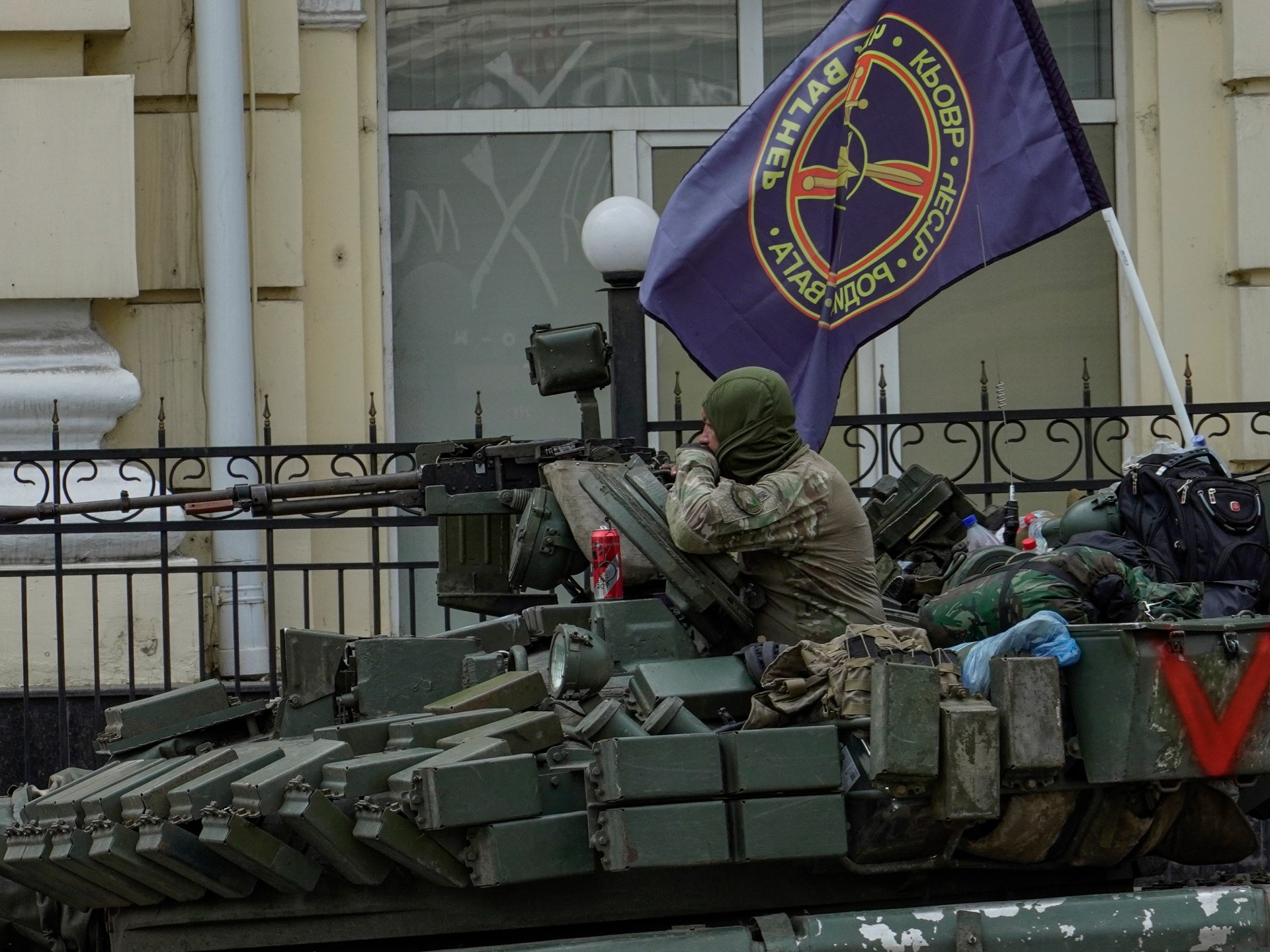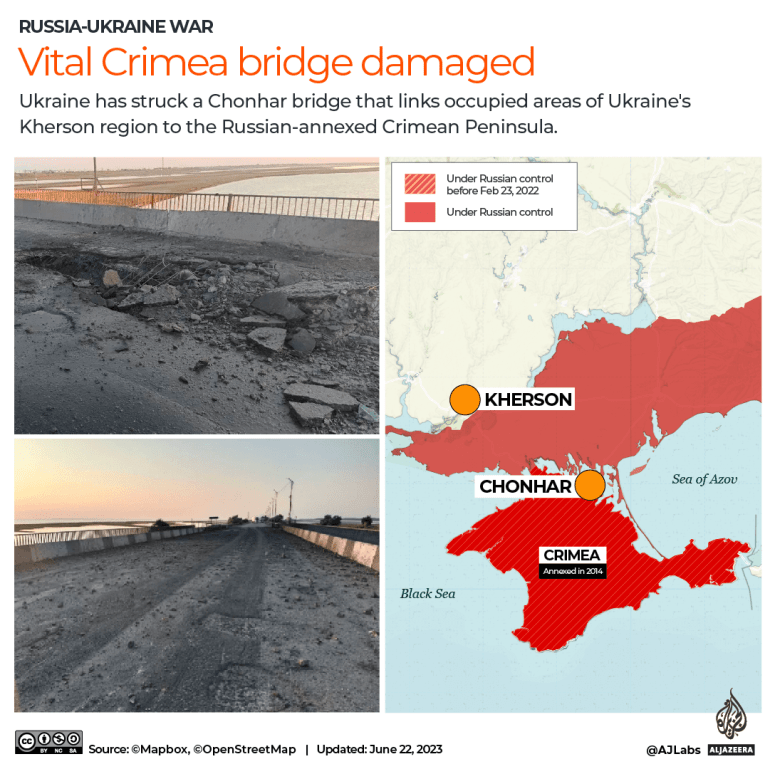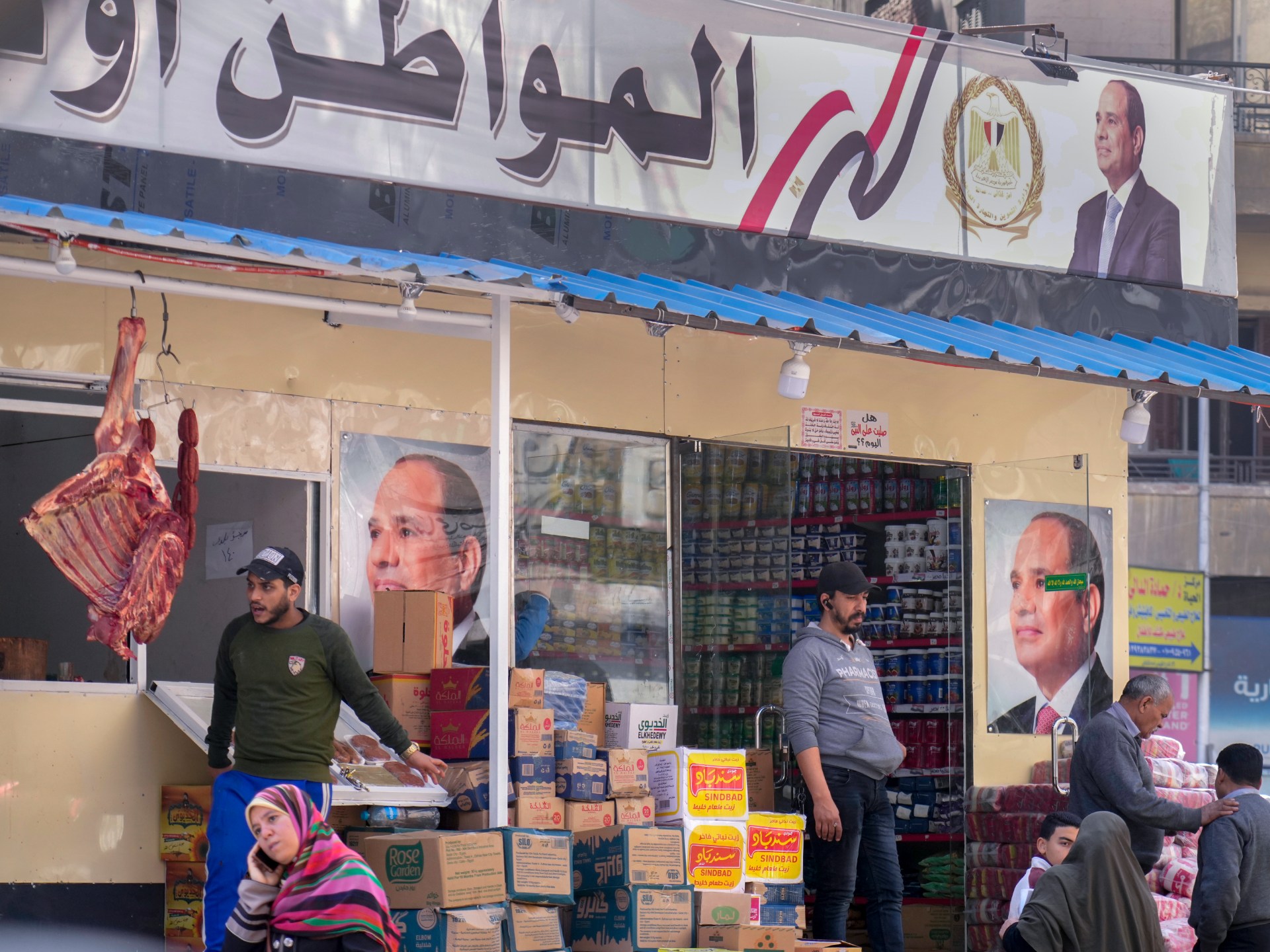
Wagner chief Yevgeny Prigozhin ordered his mercenaries to halt their advance on Moscow to avoid “shedding Russian blood” and agreed to remain in exile in Belarus – ending one of the biggest challenges to President Vladimir Putin’s decades-long rule.
Prigozhin said while his men were only 200 kilometers (120 miles) from the Russian capital, he decided on Saturday to turn them back to prevent a massacre.
“They wanted to disband Wagner’s military company. We started the Justice March on 23rd June. Now, the moment has come when blood can be shed,” Prigogine said in an audio message.
“Understanding Responsibility [for the chance] Russian blood will be spilled aside, we will turn our column and return to the field camp as planned.”
Moscow prepared for the arrival of a private army led by a rebel mercenary commander by setting up checkpoints with armored vehicles and troops on its southern edge. Red Square was closed and the mayor asked motorists to avoid certain road closures.
Wagner’s thunderous insurgency appears to have developed with little pushback from Russia’s regular armed forces, raising questions about Putin’s grip on power in the nuclear-armed nation even after Wagner’s advance was abruptly halted.
Belarusian leader Alexander Lukashenko negotiated with the mercenary boss to stop Wagner’s troop movement after discussing the matter with Putin.
Prigogine accepted Lukashenko’s offer to halt the Wagner group’s advances and take further steps to ease tensions, Lukashenko’s office said, adding that the proposed settlement guaranteed the safety of Wagner’s troops.
Prigozhin did not say whether the Kremlin had responded to demands to remove Defense Minister Sergei Shoigu.
Wagner will move to neighboring Belarus as part of the major deal and the criminal case against him will be dropped, the Kremlin said on Saturday.
Prigozhin’s soldiers who joined him in the mutiny will not be prosecuted, and those who did not will be offered contracts by the Defense Ministry, spokesman Dmitry Peskov said.
Lukashenko offered to mediate Putin’s deal, as he has known Prigozhin personally for nearly 20 years, Peskov said. “Avoiding bloodshed, internal strife and conflict with unpredictable results was the highest goal.”
‘What’s really going to happen’
Putin faced the biggest threat of his 22-year rule when rebel mercenaries advanced on the Russian capital after seizing a key southern military base. Wagner began bringing fighters and equipment back from the Russian city of Rostov-on-Don late Saturday night.
Russian defense analyst Pavel Felgenhauer said it remains to be seen how the incident plays out.
“What is actually going to happen, we will have to see tomorrow. And who actually made any concessions to whom,” he told Al Jazeera. “The ceasefire doesn’t hold so easily. Before you see the small print, it’s not time to say it’s over. It could easily unfold in an hour or two or tomorrow.
Anna Matveeva of the Russia Institute at King’s College London said the events marked a significant shift for Russia’s political landscape.
“This is the first chapter of Russia’s political transition. That’s the opening bid. We will see further developments,” he told Al Jazeera.
Back to Africa?
If he accedes to Prigogine’s demand to remove Shoigu, Prigogine will emerge from the crisis as the clear winner in a major blow to Putin’s authority.
If Prigogine agrees not to press the demand, Putin may award him more lucrative government contracts as he has made his fortune in the past.
However, it would be awkward and politically damaging for Putin to back down after branding Prigogine as a backstabbing traitor.
Some observers speculated that Prigogine might make concessions such as placing the Wagner group under federal authority or that he might move the force’s operations back to Africa, where his mercenaries have been active in recent years.
‘Suffer the inevitable punishment’
In a televised address to the nation, Putin called the uprising “betrayal” and “betrayal.”
“All those who were ready to rebel will suffer the inevitable punishment,” Putin said. “The armed forces and other government agencies have received the necessary orders.”
Authorities have declared an “anti-terror regime” in the capital and its surrounding areas, beefing up security and restricting some movements. On the southern outskirts, soldiers set up checkpoints, set up sandbags and set up machine guns.
Ukrainian President Volodymyr Zelenskyi said on Saturday that the mutiny of Wagner’s troops exposed the complete chaos in the country.
“Today, the world can see that the masters of Russia control nothing. And that means nothing. Just complete chaos. Absence of any predictions,” Zelensky said in his nightly video address.
“The longer your troops stay on Ukrainian soil, the more destruction they will bring to Russia,” Zelensky said to Putin while switching from Ukrainian to Russian.
Source link




